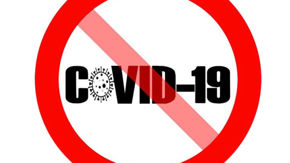We often believe that success comes from speed. Do more, move faster, stay busy, and the results will come. That’s the message we hear everywhere — in work, in school, and even in daily life. But lately, more people are beginning to realise something different. Productivity is not about speed. It’s about rhythm. And sometimes the most productive thing you can do is slow down.
The Myth of Constant Motion
For years, I thought being busy meant being productive. My calendar was full, my to-do lists never ended, and I wore “I’m so busy” like a badge of honour. But here’s the problem: being busy is not the same as being effective.
When we push ourselves to go faster all the time, we lose clarity. Mistakes creep in. Ideas feel shallow. Even the wins don’t feel as rewarding because we’re already rushing to the next thing.
Science backs this up too. Studies on multitasking show that people actually get less done when they switch tasks too quickly. The brain works better when it can focus on one thing at a time.
The Power of Slowing Down
Slowing down doesn’t mean giving up. It doesn’t mean procrastination either. It’s about creating space. Space for focus. Space for rest. Space for your best ideas to come forward.
Think about when your best thoughts arrive. Often, they don’t come while you’re hammering away at your laptop or answering emails at lightning speed. They arrive when you’re in the shower. When you’re out for a walk. When you’re lying in bed before sleep. That’s because your brain needs quiet time to connect the dots.
Slowing down gives your mind that chance.
Real Productivity Feels Different
When you slow down, productivity feels different. It’s no longer about checking off as many tasks as possible. It becomes about doing the right tasks, with the right energy, at the right time.
For example:
- Instead of rushing through five meetings, maybe you have two meaningful ones.
- Instead of writing ten shallow emails, maybe you write one strong proposal.
- Instead of working late every night, maybe you rest — and return with twice the energy.
This shift changes everything. You’re not just working more; you’re working better.
The Role of Rest
Here’s the truth: you cannot slow down without rest. Rest is not optional. It’s part of the process.
When you’re well-rested, you think clearer. You’re more patient with challenges. You see solutions faster. And you handle stress better.
But when you’re exhausted, even simple tasks feel like climbing a mountain. That’s why sleep is so important. It’s not wasted time. It’s fuel.
A supportive bed frame and a comfortable mattress may sound like small details, but they make a huge difference. If your body doesn’t rest well at night, no amount of coffee or “hustle mindset” can make up for it the next day.
Slowing Down in Daily Life
The good news is you don’t need a major lifestyle overhaul to slow down. Small choices add up. Here are a few that anyone can try:
- Morning moments
Instead of reaching for your phone first thing, start with water, a stretch, or simply a few deep breaths. - Single-tasking
Pick one important task and do it with full attention. Don’t open three tabs. Don’t check notifications every two minutes. - Breaks that matter
Walk around the block. Step outside for fresh air. Even five minutes away from a screen can refresh your focus. - Evening wind-down
Choose a routine that helps you slow down before bed. Reading, journaling, or soft music can signal to your brain that it’s time to rest. - Saying no
Productivity also means choosing what not to do. Protect your time by saying no to commitments that don’t matter.
Slowing Down in Work
Workplaces often reward speed. Quick replies. Fast turnarounds. Endless meetings. But more companies are beginning to see the value of deep work.
Deep work is the opposite of constant busyness. It’s when you set aside time for uninterrupted focus. You might spend two hours deeply thinking through a problem instead of jumping between ten small tasks.
Leaders are also starting to recognise that burnt-out teams are not productive teams. A culture that allows rest and slower, thoughtful work often creates better results.
The Fear of Falling Behind
One reason people resist slowing down is fear. Fear of missing out. Fear of falling behind colleagues. Fear of looking lazy.
But here’s the irony: moving too fast often makes you fall behind anyway. You end up redoing work, fixing mistakes, or facing burnout that forces you to stop. Slowing down, on the other hand, keeps you consistent. It helps you last longer, think smarter, and create work that stands out.
The Connection Between Slowing Down and Creativity
Many artists, writers, and inventors swear by slow living. They understand that ideas don’t appear on command. They appear in stillness.
Neuroscientists call this the “default mode network” — the part of the brain that activates when you’re not actively working. It’s when you’re daydreaming or relaxing. That’s when creativity sparks.
So if you want your next big idea, don’t rush. Step back. Let your mind breathe.
Small Experiments in Slowing Down
If you’re curious to try slowing down, start with experiments.
- Take a walk without headphones. Notice the world around you.
- Block out one hour in your day for deep, distraction-free work.
- Have one meal without screens and pay attention to the taste of food.
- Go to bed a little earlier and see how you feel after a week of better sleep.
These aren’t dramatic changes, but they remind your body and mind what it feels like to pause.
Final Thoughts
Slowing down isn’t about doing less for the sake of it. It’s about doing better. It’s about finding a rhythm that works with your energy instead of against it.
The world will always push for speed. But lasting productivity doesn’t come from racing. It comes from pacing. From knowing when to push forward and when to pause. From treating rest as fuel, not weakness.
So next time you feel the urge to rush, try the opposite. Take a breath. Step slower. Trust that slowing down is not wasting time — it’s making time count.
And remember: true productivity starts long before your first task. It begins with how well you sleep, how deeply you rest, and how strong the foundation of your day is — even something as simple as a sturdy bed frame that supports the rest you need.











